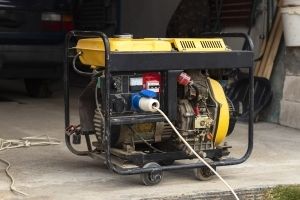We’ve all been affected by severe storms at some point in our lives. Whether you got caught in a storm while you were away from home, lost power, or sustained significant damage to your home. A flood can be especially devastating to your basement or lower levels. If you’re worried about this happening to you, take a look at this guide on how to prepare your home for a severe storm.
Trim Your Trees
If homeowners notice brittle or dead tree limbs or branches on their property, they should trim the dead or hazardous branches. If they don’t, they risk the branches falling off or causing problems. Problems like landing on a house or power line. In addition, it is better to transplant any trees that may be growing dangerously close to the house in case the severe weather breaks them and causes them to fall into the home.
Secure Outdoor Items
In order to prevent harmful flying objects such as plants, tables, and chairs during windy weather, homeowners should take these objects inside or put them in a covered outdoor location. You can also tie up that equipment using cables, bungee cords, or spiral landscape anchors. Flying objects pose the most danger for you and your neighbors. Therefore it is important store or tie down potential flying objects to prepare your home for a severe storm.
Use Surge Protectors
A power surge occurs when a strong voltage overloads a power supply and pushes it over a preset limit. Lightning strikes can generate power surges in your home that can ruin your electronics. Surge protectors, however, can guard against this damage. Most surge-protection devices can be registered with their manufacturers, and many of these devices have replacement guarantees that will cover any surge-related damage up to a specified monetary level. Also, homeowners should unplug their most expensive electronics (even if they’re equipped with surge protectors) when they’re in the house during a storm.
Invest in a Generator
A whole-house generator will restore power to your home within seconds when it kicks on during a power outage. A standby generator will operate on gas, powered by your existing propane or natural gas line. When necessary, the generator’s transfer switch activates and then turns off again. When it storms, a generator will provide you the peace of mind of knowing you’ll have no power interruptions.
For more tips on dealing with bad weather, check out these posts.
How To Stop Water From Getting Into Your House
8 Steps To Safeguard Your Home Against Water Damage


